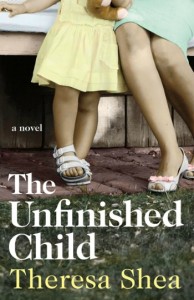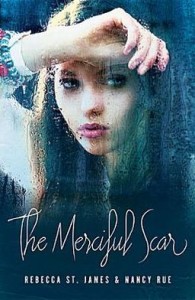Fiction is my first love, whether I’m reading or writing. In any given week, I may or may not be reading a nonfiction book, but I always have a novel on the go. I’ve dabbled in writing poetry and creative nonfiction, but fiction is the genre that has always commanded most of my attention and ideas. And I find it interesting to consider just why fiction has this ability.

We can look at fiction as pure entertainment, and often it is. I wrote a series of fantasy novels in my teens simply to escape, and if they are ever published, I will be quite happy to see people read them simply to escape. There have been a few nights lately when my husband has asked me what I want to do and I’ve said, “Let’s watch a movie. Something light and fluffy that doesn’t require much thinking.” I’ve had a busy day with lots of studying and need a break. Fiction offers that.
At the same time, fiction can also offer more than just entertainment. I’ve blogged before about the power of a story and how Charles Dickens, the Bronte sisters and many of their contemporaries wrote to teach as well as to entertain. I think this deeper aspect of fiction is very important and often it’s the thing that determines whether a book ends up on my yearly Best Books list or not.
 When I read and reviewed The Unfinished Child, author Theresa Shea reached out to me on Twitter to discuss my reaction to the novel. She said she’s noticed that “readers are quite upset by the ending of my novel. They wish it didn’t end the way it does. In my mind, that tells a very different story about how people REALLY feel about Down syndrome or, possibly, prenatal testing.” The Unfinished Child is a well-written novel which I enjoyed on multiple levels, including the fact it made me think. Shea deliberately wrote the ending to encourage discussion around a hot topic of our times—all within a good story.
When I read and reviewed The Unfinished Child, author Theresa Shea reached out to me on Twitter to discuss my reaction to the novel. She said she’s noticed that “readers are quite upset by the ending of my novel. They wish it didn’t end the way it does. In my mind, that tells a very different story about how people REALLY feel about Down syndrome or, possibly, prenatal testing.” The Unfinished Child is a well-written novel which I enjoyed on multiple levels, including the fact it made me think. Shea deliberately wrote the ending to encourage discussion around a hot topic of our times—all within a good story.
 The Merciful Scar is another novel in which I connected with the character and yet also felt like I learned a lot. Like Shea, authors Nancy Rue and Rebecca St. James bring up a big issue in the novel: cutting. Before reading the book, I really couldn’t understand what would drive someone to cut themselves. I wasn’t very many chapters into The Merciful Scar before I was crying along with Kirsten, wanting to wrap her in a hug yet completely understanding why she was hurting herself. That novel taught me not only about others but also about myself as I saw the things that I had in common with Kirsten and asked some hard questions.
The Merciful Scar is another novel in which I connected with the character and yet also felt like I learned a lot. Like Shea, authors Nancy Rue and Rebecca St. James bring up a big issue in the novel: cutting. Before reading the book, I really couldn’t understand what would drive someone to cut themselves. I wasn’t very many chapters into The Merciful Scar before I was crying along with Kirsten, wanting to wrap her in a hug yet completely understanding why she was hurting herself. That novel taught me not only about others but also about myself as I saw the things that I had in common with Kirsten and asked some hard questions.
Why does fiction have this power? I mean, I could simply spent five minutes reading an article about Down’s Syndrome or cutting online. However, I doubt I would have learned more in those five minutes than in the five hours (give or take) that it took me to read either novel. Both The Unfinished Child and The Merciful Scar had me crying while I was reading, wanting to reach into the stories and talk to the characters. I felt like they were real. And it is that emotional connection that makes fiction so powerful. I felt Kirsten’s pain and felt her relief when she cut herself and I got it, much better than I would have if I’d read a textbook explaining that cutting relieves pain.
This is also a topic that I’ve thought about in my writing. Often in writing classes or in writing books, theme is discussed. Writers are cautioned about theme, however, because often it can make a novel seem preachy or pushy. Yet when a theme is well-done, when it is integral to the story, it can push it into that next level. For example, right now I’m attempting to write historical fiction. One of my writing instructors asked me why—what does a woman who lived two hundred years ago have to say to readers today? As I think about that question, I come up with multiple answers, all of which will influence what happens in the story.
What is your favourite genre to read or to write?

12 Comments
I’m definitely a read-to-escape person. There’s enough pain in the news and the world around us. And I hate reading books that traumatize me.
But I agree, Bonnie, about The Merciful Scar… that’s an example of how a novel can be both a good story and a means of teaching and expanding our understanding. It’s one of those life-changing stories for me.
I don’t like books that require me to think, but I love books that engage me enough that I can’t stop thinking about them — and in that thinking I discover more layers. If I can’t get something from it without investing the thought, though, I’m not likely to bother.
I love fiction, too, Bonnie. And, yes, it is the emotions that surface that differentiate it from reading non-fiction (except perhaps creative non-fiction!). I really liked your approach of what does a woman from 200 years ago have to say to us today. Because it’s all about her relevancy to us, isn’t it?
Because I’m relationship-driven in life, I too connect with characters in the books I read. I believe my ability to do so allows me to connect more effectively with real people. And it’s why I love a great character-driven story. It’s all about the people. I want to feel strongly about at least one character in the novels I read, even if I want to climb into the book and give them a good shake. 🙂
All the best as you continue your journey.
I agree Bonnie; there’s something about story that resonates with us as human beings. I’ve heard lots of pastors say that when they are preaching, they witness a change in the congregation as soon as they launch into a story – suddenly everyone straightens up and gives them their full attention. We’re created for story – which Jesus clearly understood as he used them to teach so many important truths.
Bonnie,
Thanks for your post. I appreciated the way you discussed different reasons for reading and writing fiction. I rarely read just to escape – I like to be challenged in my thinking. Thanks for participating in the blog hop 🙂
what a great post. i completely understand what you mean about connecting with characters and learning through their experiences. i guess that’s why people say writers should read, so that we can experience what others are going through and incorporate those lessons into our own writing.
Escape is the name of the game for me as well. My escape of choice of late has leaned toward Young Adult Fiction with Fantasy elements. Thanks for your post!
Leanne Ross ( readfaced.wordpress.com & @LeanneRossRF )
You’re so right! The emotional connection that readers feel in books of fiction or biography is what helps the reader personally identify with an issue–whether it be like the characters you mention or other life issues. That happens much more than in an article about the subject. You live along with the characters and reach a deeper level of understanding and connection which makes you more able to identify with the people you meet. Loved your blog!
Great post, Bonnie. Fiction is my main go-to. I have a collection of non-fiction books by my bed that I want to read. But whenever I go to pick up something new, I reach for fiction. I agree with you, I’m searching for that emotional connection when I read. A connection, I have yet to see in any non-fiction book I’ve read.
-RB
I love reading sci-fi and spec and write romantic suspense. :)I like your examples, Bonnie
Wow, that’s three blog posts in a row that have mentioned historical fiction. I write alternate historical fiction, which requires the kind of research that follows a question like “What would have happened if Hitler had won WWII?” I agree that stories help us connect to experiences we haven’t had on a more visceral level. Thanks, Bonnie!
Hi Bonnie,
I love the sentiments in your post. My experience is quite similar, and Fiction is such a broad smorgasbord!